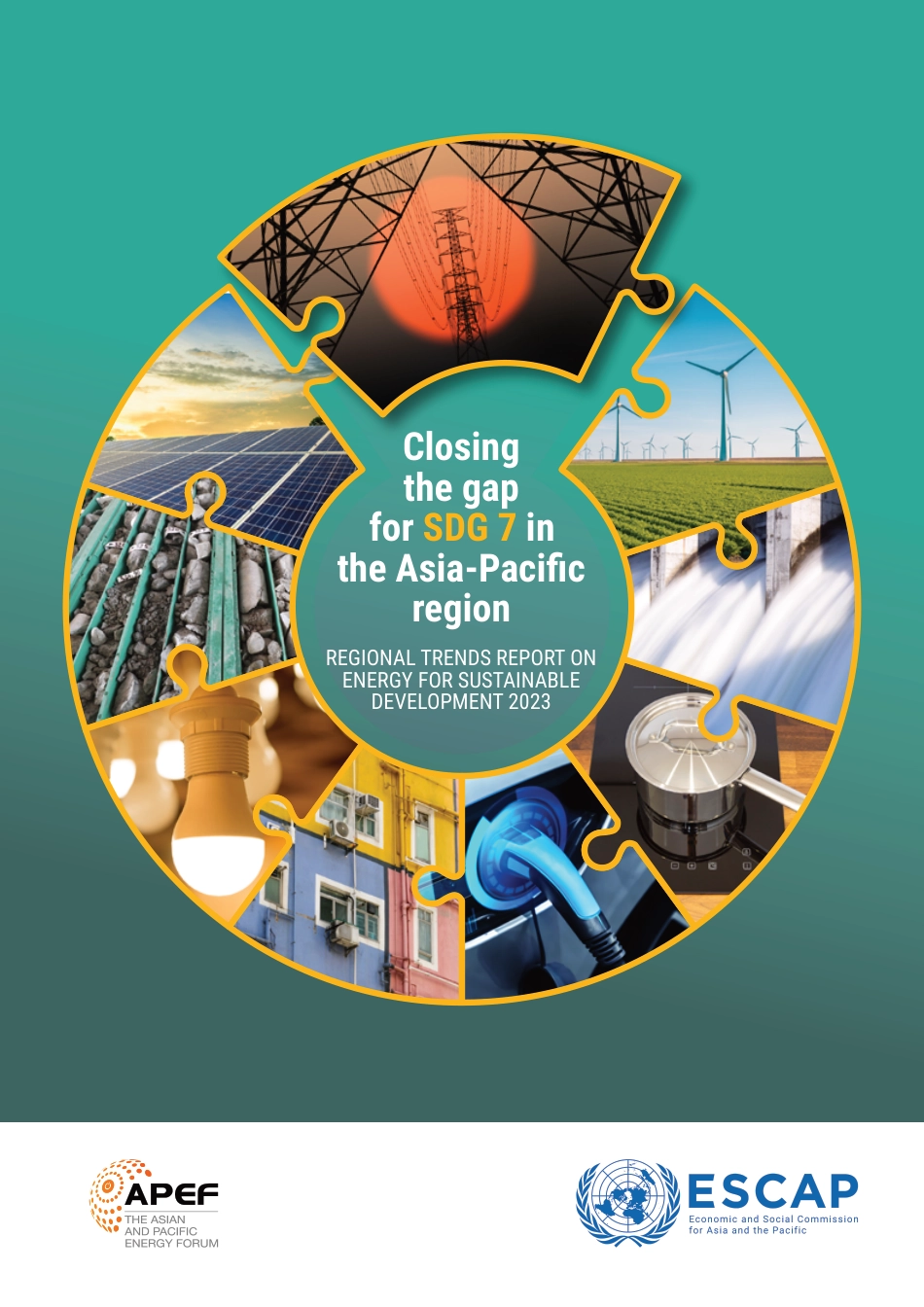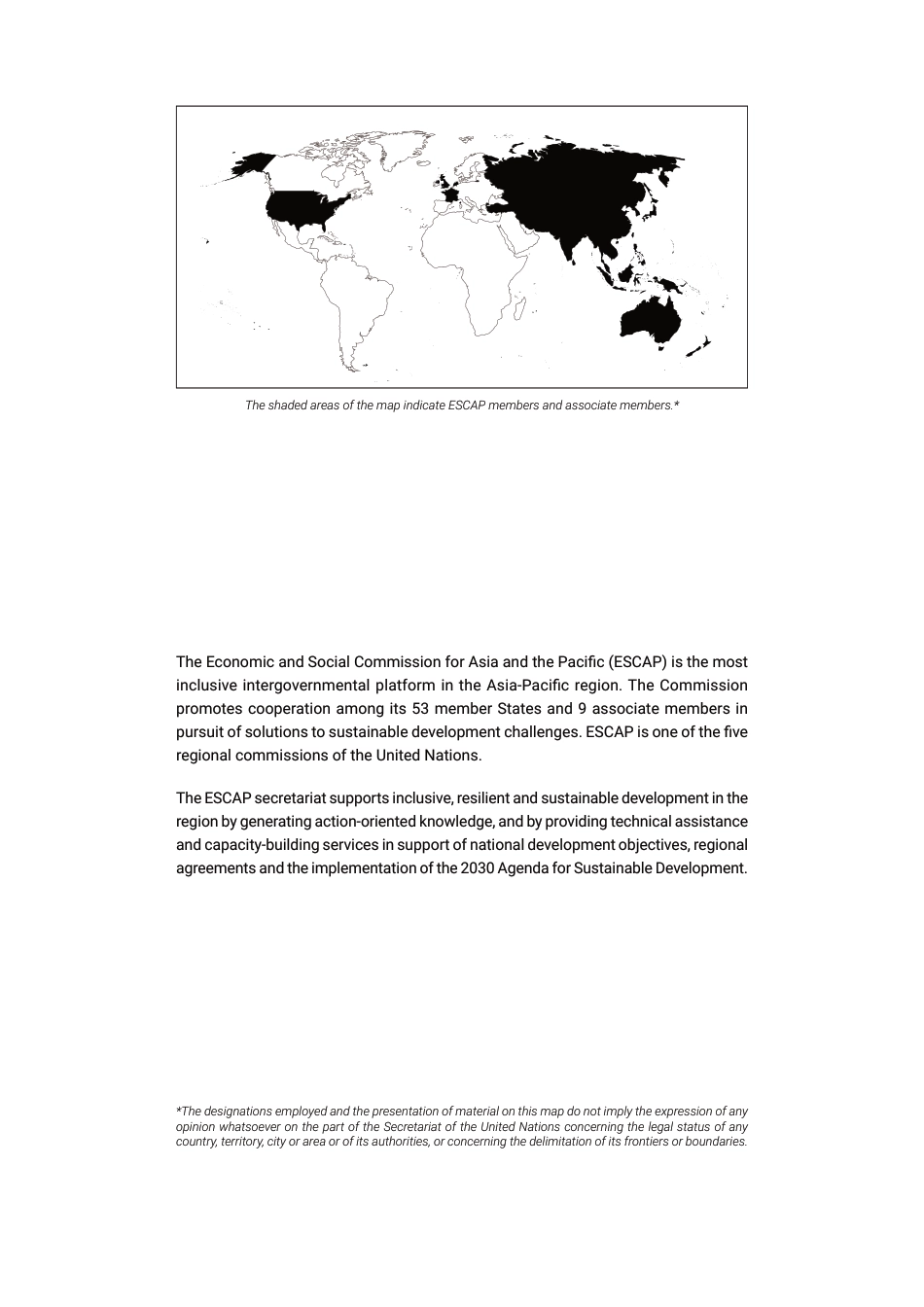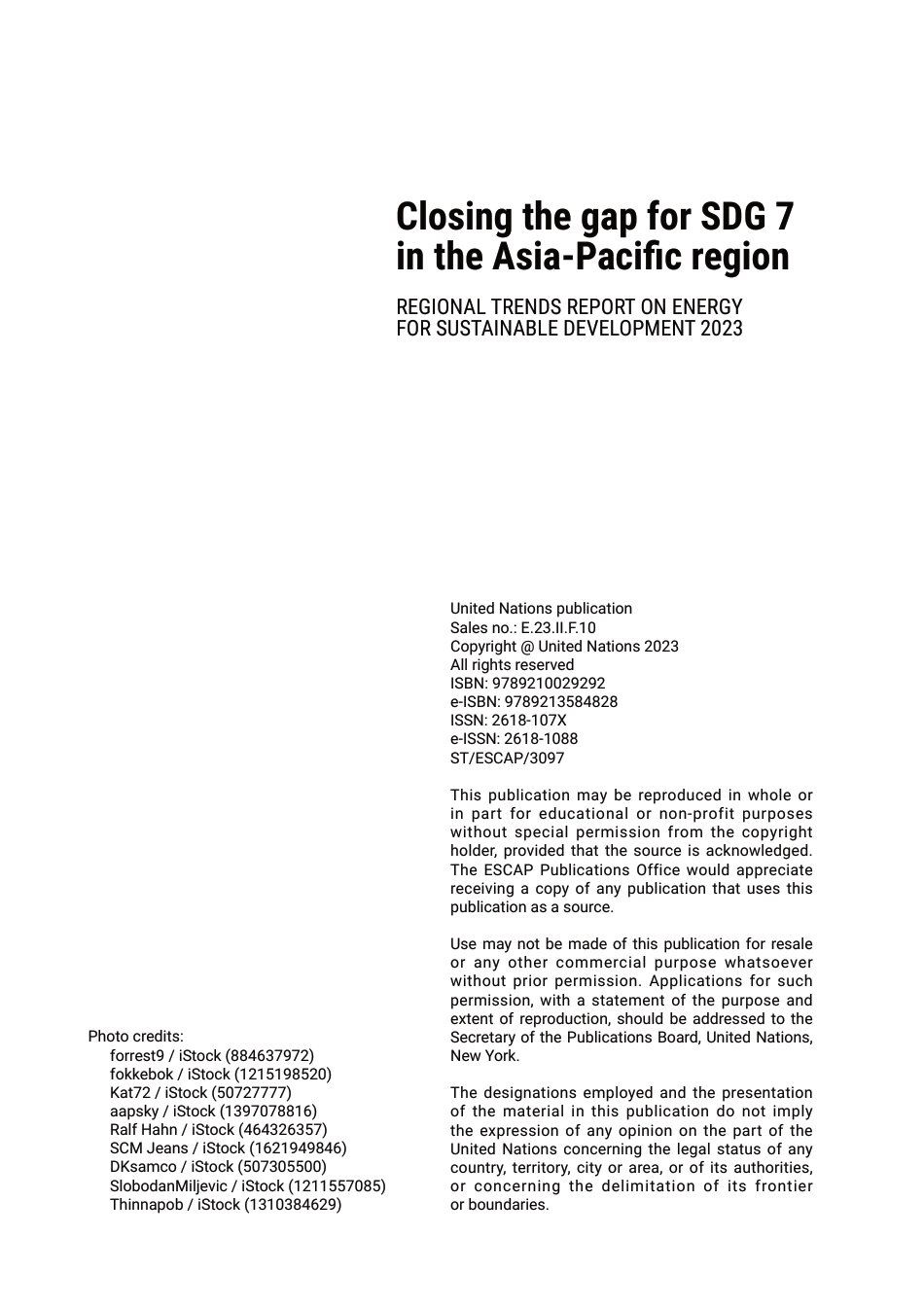Closing the gap for SDG 7 in the Asia-Pacific regionREGIONAL TRENDS REPORT ON ENERGY FOR SUSTAINABLE DEVELOPMENT 2023*The designations employed and the presentation of material on this map do not imply the expression of any opinion whatsoever on the part of the Secretariat of the United Nations concerning the legal status of any country, territory, city or area or of its authorities, or concerning the delimitation of its frontiers or boundaries.The shaded areas of the map indicate ESCAP members and associate members.*The Economic and Social Commission for Asia and the Pacific (ESCAP) is the most inclusive intergovernmental platform in the Asia-Pacific region. The Commission promotes cooperation among its 53 member States and 9 associate members in pursuit of solutions to sustainable development challenges. ESCAP is one of the five regional commissions of the United Nations.The ESCAP secretariat supports inclusive, resilient and sustainable development in the region by generating action-oriented knowledge, and by providing technical assistance and capacity-building services in support of national development objectives, regional agreements and the implementation of the 2030 Agenda for Sustainable Development.United Nations publication Sales no.: E.23.II.F.10Copyright @ United Nations 2023All rights reservedISBN: 9789210029292e-ISBN: 9789213584828ISSN: 2618-107Xe-ISSN: 2618-1088ST/ESCAP/3097This publication may be reproduced in whole or in part for educational or non-profit purposes without special permission from the copyright holder, provided that the source is acknowledged. The ESCAP Publications Office would appreciate receiving a copy of any publication that uses this publication as a source. Use may not be made of this ...



